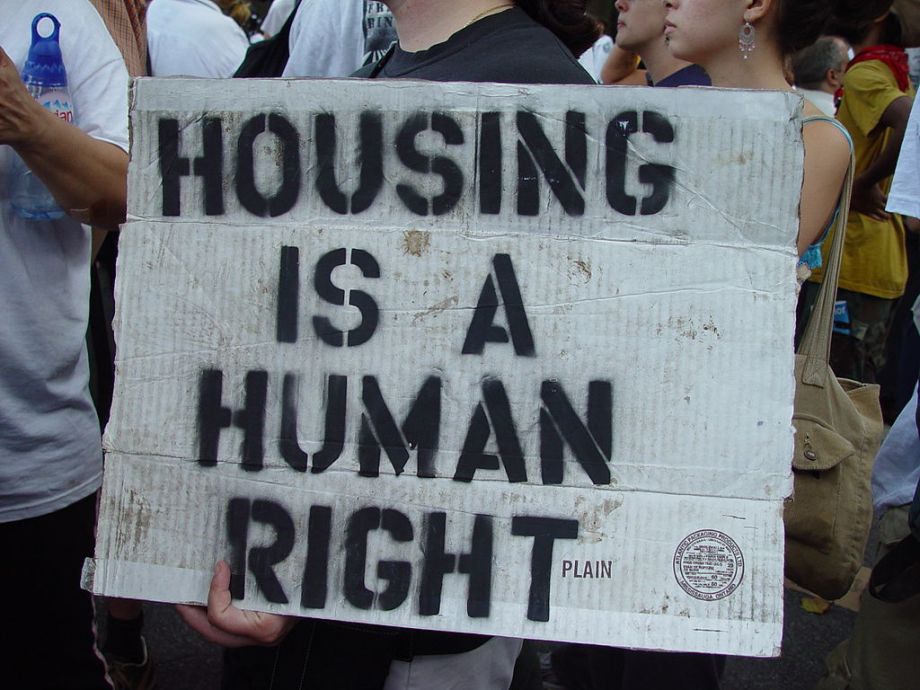Home prices in the U.S. rose annually double-digits since the start of the pandemic and into 2021. Rents are rising sharply too, particularly for lower-cost units. The biggest culprit is a historic housing shortage, but rising inflation and rumblings of an impending economic recession will only exacerbate the crisis.
Amid the increasingly daunting housing landscape, CDFIs are playing a key role. Nowhere is that more needed than NYC. Habitat NYC Community Fund, a relatively small CDFI of $5 million, is among several working to preserve and provide affordable housing for low- to moderate-income New Yorkers. It’s a daunting task, harder now since the recent expiration of New York State’s 421-A program that incentivized developers to set aside portions of their projects for affordable housing by rewarding them with tax abatements.
Christopher Illum, chief program officer and executive vice president at Habitat for Humanity New York City and Westchester County, which oversees the Habitat NYC Community Fund, talked recently about CDFIs’ challenges in tackling the country’s vast housing crisis.
How would you describe the housing crisis, exactly?
It’s a tough question, because we’re perpetually talking about a housing crisis in New York. And it’s exacerbated. We know it’s worse because of COVID, bottlenecks in the supply chain, outside investments, rising cost of rents. People don’t have a place to call home. People don’t have the safety and stability and guaranteed tenure that people need in order to establish the basis of what it is to build a life. I mean, you can’t have economic development without housing.
So, when you say what is the crisis? The crisis is that we can’t seem to solve the problem. We cannot seem to get enough housing or the appropriate kind of housing. We need all the partners involved (to solve the housing problem). It needs government, nonprofits and private enterprise.
What is Habitat NYC Community Fund doing to help?
We are always looking to finance and support (clients) through development services and technical assistance. We’re focused on development and preservation of affordable homeownership particularly, but we’ve also done some rental. We have a focus on long-term affordability. The root of our fund is about preservation, keeping people where they are.
For example, we’ve done some green infrastructure loans. We participate a lot with the New York City Department of Housing Preservation and Development (HPD) to help bring to bear and leverage public investment along with some private debt coupled with very deep technical assistance, or what the CDFI community calls development services.
So, the main role that CDFIs play in housing generally is financing affordable housing projects and providing loans to low- and moderate-income folks?
It’s more than that. We provide financing often to peoples or entities that might not ever qualify for standard commercial financing. But more than that, and I think this is key to our work, as we see ourselves as a partner pulling in other lenders. We bring comfort not only to the borrowers but also to other lenders through our development services, which is CDFI language for technical assistance.
We need to have greater access to housing, but we need to make that housing durably affordable, to make sure that people don’t get squeezed out of neighborhoods over time. We also need to keep diversity of these neighborhoods in place.
Are you optimistic in CDFIs ability, in general, to really make a significant dent in the housing crisis?
CDFIs really sit in a unique position to tackle some of these (housing) issues we have by bringing in government, by bringing in private finance. We’re a small fund but we can go to a commercial bank and ask: Do you want to participate on this deal with us? We know it’s a little bit outside of your realm of expertise, but we’re gonna stick around and provide technical assistance. And we’re gonna have skin in the game [through loans].

This story is part of our series, CDFI Futures, which explores the community development finance industry through the lenses of equity, public policy and inclusive community development. The series is generously supported by Partners for the Common Good. Sign up for PCG’s CapNexus newsletter at capnexus.org.
This article is part of Backyard, a newsletter exploring scalable solutions to make housing fairer, more affordable and more environmentally sustainable. Subscribe to our weekly Backyard newsletter.
Christopher C. Williams is a New Jersey-based freelance financial writer. He worked for many years with Dow Jones Newswires and Barron’s Financial Weekly and has contributed to publications including the Wall Street Journal, The New York Times and Essence magazine. He focuses on the intersection of business, economic equity and racial justice.


















